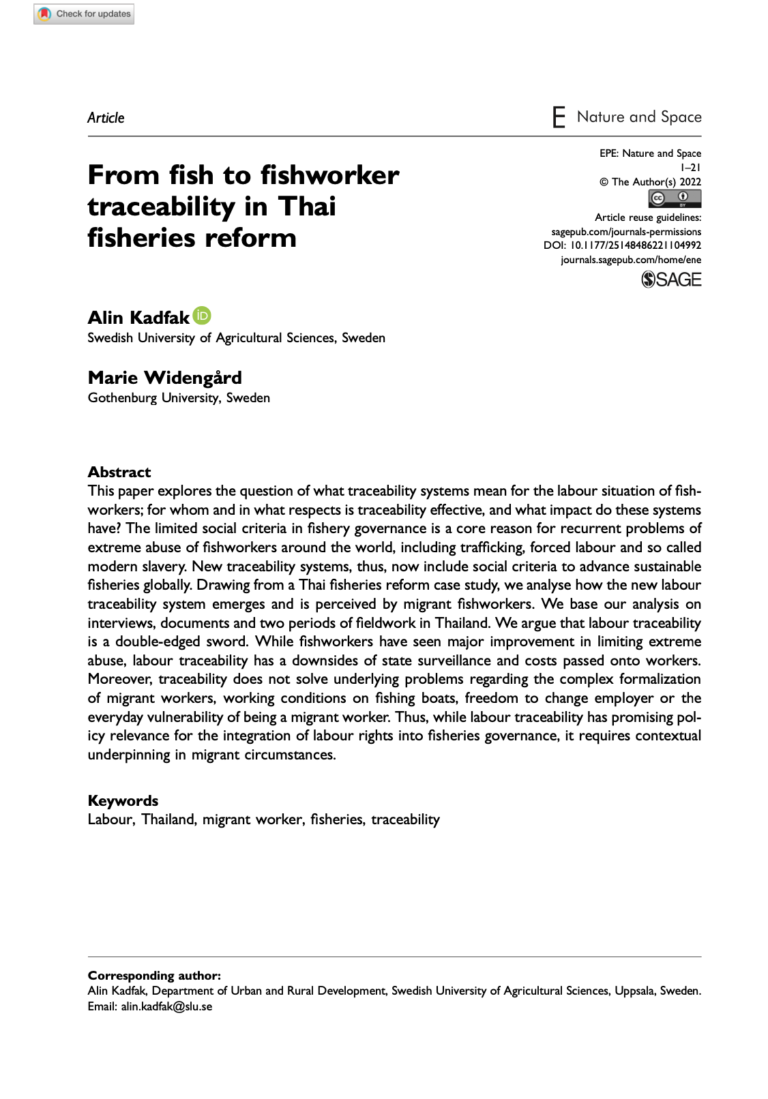This paper explores the question of what traceability systems mean for the labour situation of fish- workers; for whom and in what respects is traceability effective, and what impact do these systems have? The limited social criteria in fishery governance is a core reason for recurrent problems of extreme abuse of fishworkers around the world, including trafficking, forced labour and so called modern slavery. New traceability systems, thus, now include social criteria to advance sustainable fisheries globally. Drawing from a Thai fisheries reform case study, we analyse how the new labour traceability system emerges and is perceived by migrant fishworkers. We base our analysis on interviews, documents and two periods of fieldwork in Thailand. We argue that labour traceability is a double-edged sword. While fishworkers have seen major improvement in limiting extreme abuse, labour traceability has a downsides of state surveillance and costs passed onto workers. Moreover, traceability does not solve underlying problems regarding the complex formalization of migrant workers, working conditions on fishing boats, freedom to change employer or the everyday vulnerability of being a migrant worker. Thus, while labour traceability has promising policy relevance for the integration of labour rights into fisheries governance, it requires contextual underpinning in migrant circumstances.

